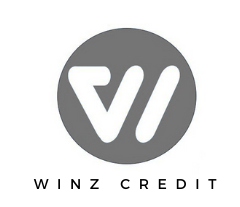Credit card debt mounting higher each month? Personal loan payments becoming impossible to manage? You’re not alone. Many people find themselves overwhelmed by debt, struggling with multiple monthly payments and high interest rates. When financial stress reaches this point, a Debt Management Program (DMP) might offer the structured solution you need.
A Debt Management Program is a formal repayment plan that helps you regain control of your finances through professional guidance and negotiations with creditors. Unlike quick-fix solutions that often create more problems, DMPs offer a methodical approach to debt elimination, preserving your financial future.
This comprehensive guide will explore how DMPs work, their benefits and potential drawbacks, and whether this approach aligns with your financial goals. We’ll also examine alternatives and provide practical advice for finding reputable providers.
What is a Debt Management Program?
A Debt Management Program is a structured repayment plan administered by credit counseling agencies to help individuals pay off unsecured debts. These programs work by consolidating multiple debt payments into one monthly payment, often with reduced interest rates and waived fees negotiated by the counseling agency.
How DMPs Function
Credit counseling agencies act as intermediaries between you and your creditors. They analyze your financial situation, create a realistic budget, and negotiate with creditors on your behalf. The process typically unfolds as follows:
Initial Assessment: A certified credit counselor reviews your income, expenses, and outstanding debts to determine if a DMP suits your situation.
Creditor Negotiations: The agency contacts your creditors to negotiate lower interest rates, waived fees, and modified payment terms.
Plan Creation: Based on successful negotiations, the agency creates a consolidated payment plan that fits your budget.
Monthly Payments: You make one monthly payment to the credit counseling agency, which then distributes funds to your creditors according to the agreed plan.
Ongoing Support: Throughout the program, counselors provide financial education and support to help you develop better money management skills.
Types of Debts Covered
DMPs typically handle unsecured debts such as:
- Credit card balances
- Personal loans
- Medical bills
- Store cards
- Some types of student loans
Secured debts, such as mortgages and car loans, are generally not included in DMPs, as they require different handling strategies.
Benefits of Debt Management Programs
DMPs offer several advantages for people struggling with overwhelming debt burdens.
Reduced Interest Rates
One of the most significant benefits is the potential for substantially lower interest rates. Credit counseling agencies have established relationships with major creditors and can often negotiate rates as low as 6-10%, compared to standard credit card rates that may exceed 20%.
Simplified Payment Structure
Instead of juggling multiple due dates and payment amounts, you make one monthly payment to the credit counseling agency. This simplification reduces the risk of missed payments and helps you stay organized.
Waived Fees and Penalties
Many creditors agree to waive late fees, over-limit charges, and other penalties when you enter a DMP. This can save hundreds or thousands of dollars over the program’s lifetime.
Professional Financial Education
DMPs include ongoing financial counseling and education. You’ll learn budgeting skills, money management techniques, and strategies to avoid future debt problems.
Faster Debt Elimination
With reduced interest rates and structured payments, most people complete DMPs within 3-5 years, significantly faster than making minimum payments alone.
Credit Protection
While your credit score may initially decline slightly, DMPs help protect your credit from further damage. Consistent payments and eventual debt elimination often lead to improved credit scores over time.
Potential Drawbacks of DMPs
Despite their benefits, DMPs aren’t suitable for everyone and come with certain limitations.
Program Fees
Most credit counseling agencies charge setup fees and monthly maintenance fees. These typically range from $25 to $ 50 monthly, though some agencies offer sliding-scale fees based on income.
Initial Credit Score Impact
Enrolling in a DMP may temporarily lower your credit score. However, this impact is generally less severe than defaulting on debts or filing for bankruptcy.
Account Closure Requirements
Creditors often require you to close credit card accounts included in the DMP. This reduces your available credit and may affect your credit utilization ratio.
Not a Quick Fix
DMPs require commitment and discipline. The programs typically last 3-5 years, and you must make consistent monthly payments throughout this period.
Limited Debt Types
DMPs only address unsecured debts. If you’re struggling with secured debts, such as mortgages or car loans, you’ll need additional solutions.
Is a Debt Management Program Right for You?
Determining whether a DMP is suitable for your situation requires an honest assessment of your financial circumstances and goals.
Ideal Candidates for DMPs
You might benefit from a DMP if you:
- Have a steady income but struggle with high interest rates
- Owe $5,000 or more in unsecured debt
- Can afford monthly payments, but need lower interest rates
- Want professional guidance and support
- Prefer avoiding bankruptcy or debt settlement
- Have the discipline to stick with a long-term plan
When DMPs May Not Be Suitable
Consider alternatives if you:
- Have irregular or insufficient income
- Owe less than $3,000 in total debt
- Can pay off debts within 12 months on your own
- Face primarily secured debt problems
- Need immediate debt relief
Financial Assessment Questions
Ask yourself these key questions:
- Can you afford monthly payments of $200-500 for 3-5 years?
- Are you committed to changing spending habits?
- Do you have emergency savings to avoid new debt?
- Are creditors willing to work directly with you?
Alternatives to Debt Management Programs
Several other debt relief options are available, each with its distinct advantages and disadvantages.
Debt Consolidation Loans
Personal loans can consolidate multiple debts into one payment with a fixed interest rate. This option works well if you qualify for rates lower than your current debts and have a stable income.
Pros: Fixed payments, potential interest savings, no impact on credit accounts
Cons: Requires good credit for best rates, doesn’t address spending habits
Balance Transfer Credit Cards
Transferring high-interest debt to cards with promotional 0% APR periods can provide temporary relief.
Pros: Potential for zero interest periods, maintains credit availability
Cons: Requires excellent credit, promotional rates eventually expire
Debt Settlement
This involves negotiating with creditors to accept less than the full amount owed.
Pros: Potential for significant debt reduction
Cons: Severe credit damage, tax implications, no guarantee of success
Bankruptcy
Chapter 7 or Chapter 13 bankruptcy offers legal debt relief for individuals experiencing severe financial hardship.
Pros: Legal protection, potential debt elimination
Cons: Long-term credit impact, public record, asset risk
Finding a Reputable DMP Provider
Choosing the right credit counseling agency is crucial for program success.
Accreditation and Certification
Look for agencies accredited by the National Foundation for Credit Counseling (NFCC) or the Financial Counseling Association of America (FCAA). Counselors should hold certifications from recognized organizations.
Transparency in Fees
Reputable agencies clearly explain all fees upfront. Be wary of organizations that:
- Charge large upfront fees
- Promise unrealistic results
- Pressure you to enroll immediately
- Refuse to provide fee schedules in writing
Free Initial Consultation
Legitimate credit counseling agencies offer free initial consultations and budget reviews. This allows you to understand your options without financial commitment.
Educational Resources
Quality agencies provide comprehensive financial education, including budgeting workshops, debt management courses, and ongoing support resources.
Better Business Bureau Rating
Check the agency’s BBB rating and read customer reviews to understand their track record and customer satisfaction levels.
Taking Control of Your Financial Future
Debt Management Programs offer a structured path toward financial freedom for many borrowers who are overwhelmed. While they require commitment and may involve temporary sacrifices, DMPs provide professional support, reduced interest rates, and a clear timeline for debt elimination.
The key to success lies in choosing a reputable provider, understanding all terms and conditions, and maintaining discipline throughout the program duration. Remember that a DMP is not just about paying off debt—it’s about developing the financial skills and habits necessary for long-term financial stability.
If you’re struggling with overwhelming debt, consider speaking with a certified credit counselor to explore whether a Debt Management Program aligns with your financial goals. Professional guidance can help you make an informed decision and take the first step toward regaining control of your financial future.
Your path to financial freedom begins with a single step. Take that step today by reaching out to a qualified credit counseling professional who can help assess your situation and recommend the most suitable debt relief strategy for your unique circumstances.



